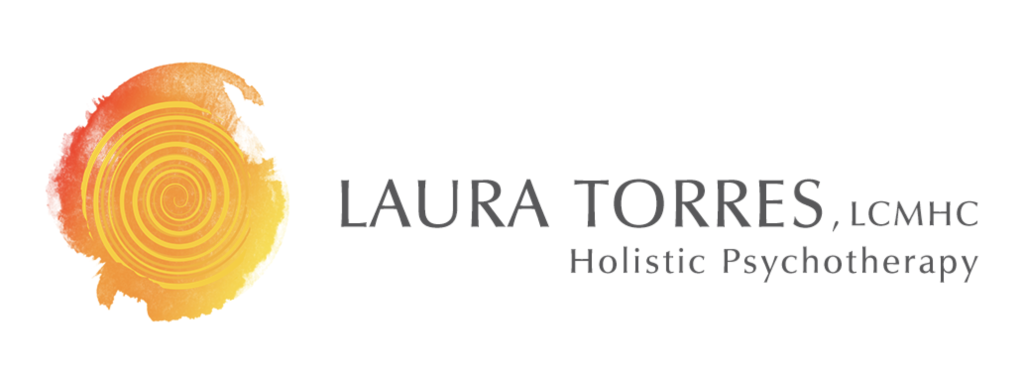Studies show that over 65% of people report feeling stressed over the holiday season. Not that you need studies to tell you this, eh? If you’re like most of us, you’re feeling the stress. And many of the stressors themselves are outside of our control so oftentimes we just endure. We assume that stress is just part of the holidays. The downside of this way of dealing is that when we are just pushing through in a stressed out state, we are missing out on all of the potential benefits–the opportunities to feel more energy, joy, and connection.
The act of giving from a place of love and open-heartedness, whether it’s a smile and kind greeting to a stranger, a sweet text for a friend, a hug for someone who’s struggling, or a gift for someone you love, is incredibly resourcing both for the giver and the receiver. When we give from this place, it’s actually an antidote to stress–which is very different from the pressure to buy enough gifts or the perfect gift, to show up and be ‘on’ in social settings and have a different impact on our energy and internal resources. When we’re wrapped up in the stress of not being enough, not having enough, not giving enough, and are under-resourced ourselves, the act of giving becomes something that’s depleting rather than resourcing–and so we miss out, big-time!
One of my teachers, Tara Mohr, uses the term gift goals and ‘should’ goals to distinguish between practices that are internally motivated and practices that are externally motivated by fear of judgement or criticism, ‘shoulds’, and ideas of what is good enough. Gift practices give you energy and ‘should’ practices drain your energy. What’s amazing is that whether a practice is a gift or a ‘should’ is all about our perception and experience of it! Here’s an example of a holiday ‘should’ practice: I’m looking for a gift for my husband and am focused on how much money I should spend, how much he might spend on me and worried that if I don’t spend enough, he’s not going to feel like I care, but I don’t want to spend too much because I have so many people to get gifts for so I look around, checking price tags and feeling conflicted and worried about how much is enough but not too much. I feel stressed and anxious while I’m looking and even after finding a gift, I’m continuing to second guess it. So let’s shift to what a gift practice might look like: I’m looking for a gift for my husband and take some time to think about what he would really LOVE and how I imagine him feeling whenever he opens it. I’m feeling excited about the challenge as I look around and with each item, I’m thinking about what it’d be like for him to open it versus thinking about the price and whether it’ll be enough. The outcome is the same for both of these–finding a gift for my husband–but my experience of working towards the goal and the effect it has on my mood and energy level is very different. Take a minute and consider anything you’ve been approaching from a ‘should’ framework. How can you transform it into a gift practice, that gives you energy?
Not only do we shift our experience in the moment when we focus on gift practices but we also shift our future experiences. In psychology we call this self-fulfilling prophecy and in energy work, we call it the law of attraction. If I’m in a state of relaxed energy and love as I look for gifts or go about my day, I attract energy that resonates at a similar vibration. From a neuropsychology frame, we might say that we see what we expect to see and filter out what we don’t expect. When we are in a state of love and abundance, we see and experience generosity of spirit all around us and it continues to fuel our own sense of abundance and generosity. The opposite is also true, however, which is why it can be so tough to shift gears when we’re stressed out. Here’s an example: We’re running late, feeling frenzied as we drive to an appointment, and just our luck, we get stuck behind a school bus. And we continue to get more and more stressed and have more experiences that reinforce that stressed state. Consider the opposite, we’re running late and we take some deep breaths and decide that it’s okay if we’re late, we accept what is and surrender to being late. And it turns out that all of the lights are in our favor and we’re only a couple minutes late. Seems pretty clear what state we want to be spending our time in, eh? Not to mention all of the other health benefits of feeling less stressed!
So the first step to feeling less stressed is noticing that we’re stressed. Many of us are either so used to it that we don’t notice it or so stressed that we’re not aware of the cues that let us know we’re stressed. Take a few minutes and consider the internal and external cues that let you know you’re stressed (so that you can recognize them in the coming weeks). Here are some ideas: being easily frustrated/irritated, sweating, feeling hot, tightness in chest, increased heart rate, shallow breathing or holding breath, feeling exhausted or on over-drive. As many of you know, I’m a big fan of mindfulness and there’s nothing like practice to help us get better at noticing what’s happening for us. So I encourage you to challenge yourself to a daily mindfulness practice to start to build this muscle of present moment awareness. I like the Calm app because you can practice for as short as 2 min and sometimes that feels like all we can fit in.
Next, fill up that cup! Even the act of acknowledging that you’re stressed (above), can offer some relief. Pay attention to your needs, ask for support, say ‘no’ when there’s an internal ‘no’. When we’re stressed, we usually aren’t taking care of ourselves. The most important step in being able to give from a place of love and generosity, is giving to ourselves from this same place of love and generosity. How can we be expected to give to others from this place if we’re not doing it for ourselves? When we’re in a resourced state, we naturally focus on the positive. Suppose you check in and realize you’re stressed–you notice your body is exhausted and your family has been accusing you of being snapping and irritable. Then you ask yourself what you need and you hear loud and clear ‘I need more time’ but then you think ‘I can’t create more time!’. The good news is that it’s not really about creating more time (or whatever it is that you think you need) but rather feeling into the state of having plenty of time. So take a minute and think about what you could do that would help you connect to this state. It might be taking something off your plate. Or asking your partner to make dinner so that you can have 30 minutes to relax. It might be setting a timer and doing some type of activity that you get lost in, knowing that your time is being tracked for you so you can let go of time altogether. And even just thinking about what you could do to meet your need, might start to fill you up. Don’t forget to really take it in when you feel yourself shifting into a more relaxed or energized state.
Lastly, notice your impulses to give, to connect, to join in, to express gratitude and follow those impulses. Often times we ignore or hold back when we feel an impulse to reach out and connect for fear of judgement or rejection. When we hold back, we stay safe but we miss out on opportunities for connection. Perhaps we feel an impulse to reach out to a friend who we haven’t talked to in a while–instead of just thinking it, send her a text to say hello. Just to be clear, this is different from reaching out when you feel like you ‘should’ because you haven’t talked to her in a while. I’m not saying it’s bad to do things you feel like you should do. I am suggesting that these ‘should’ practices don’t tend to decrease your stress and increase your capacity to give more. When we give out of a place of open-hearted generosity, we feel fuller, more energized and when we give out of a sense of obligation or out of fear, we end up being more depleted. We don’t need to judge these practices as good or bad, but it’s powerful to start to notice the effects.
Similarly, when you don’t feel an impulse to give or connect, allow yourself to just be where you’re at without pressuring yourself or making yourself feel guilty. Perhaps you could get curious. This could be an indicator that you’re depleted or under-resourced. In which case, return to step two. Also, notice when your giving is rooted in fear–fear of judgement, criticism, not being good enough. Play with reframing, shift your focus to something positive, or do something for yourself. Notice when others are giving out of generosity of spirit and take that in (not as in compare yourself and feel bad that you’re not doing the same!) but rather, soak it up. When we hang out with people who give generously, it rubs off. Notice how others receive it when you give from an open-hearted space. When we give from a place of love, we create more loving energy, both in ourselves and in others. There are no limits <3 As with any new practice, this isn’t always easy so be gentle with yourself and keep on practicing.
Challenge: Notice when you’re in a space of stress, fear, not enough-ness around the holidays and take some time to intentionally shift gears. If you can’t shift your space around the task at hand, do something else and come back to it. Be gentle with yourself!
Affirmation: The more I give from a place of love, the more love I have to give.

